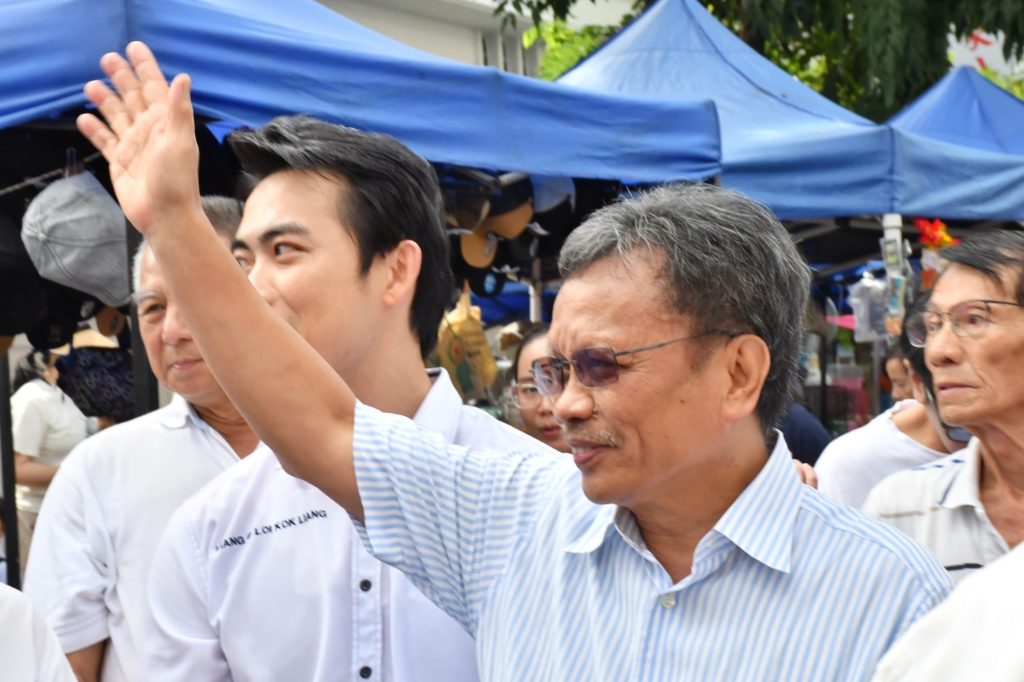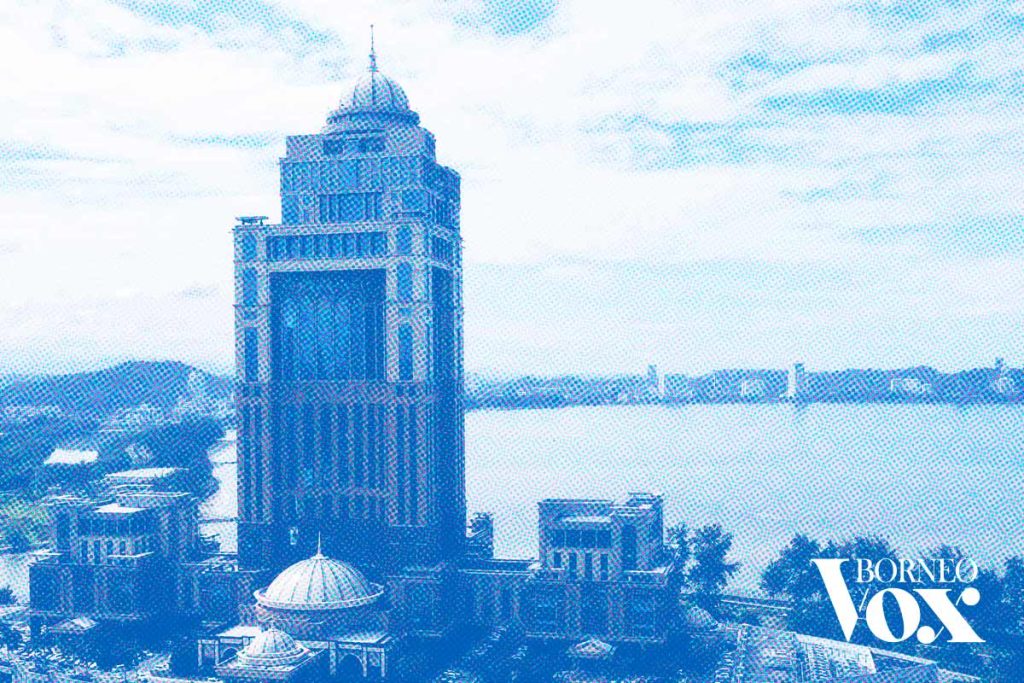

If there’s one thing Sabah’s recent political shifts have shown, it’s that policies can outlast administrations, even if credit doesn’t always follow the originator.
In 2018, the Warisan government introduced a 5% State Sales Tax (SST) on petroleum products, a move designed to reduce Sabah’s reliance on federal allocations and establish a new revenue stream for the state.
The tax officially came into effect on April 1, 2020— few months before Warisan lost power in the state election the same year.
Then came Gabungan Rakyat Sabah (GRS), led by Datuk Seri Hajiji Noor. The new administration kept the tax in place and reaped the rewards.
By August 2021, RM1.25 billion had been collected from Petronas.
By 2022, the figure had surged to RM1.99 billion, contributing to a record RM6.96 billion in total state revenue.
A financial success? Yes. But an original GRS initiative? Not quite.
Warisan built the foundation, but GRS took the profits—a recurring theme across multiple policy areas. And despite the increase in revenue, Sabah’s biggest challenges remain largely unresolved.
The 40% revenue entitlement: Still a long way to go
Both Warisan and GRS have fought for Sabah’s constitutional right to 40% of federal revenue collected from the state.
Warisan took the aggressive route, arguing that the entitlement should be paid immediately, without negotiation. But by the time the party was ousted, not a single extra ringgit had been secured.
GRS took a more diplomatic approach, negotiating a gradual increase in federal allocations. The special grant rose from RM125.6 million in 2022 to RM600 million in 2025. A win on the surface, but still far from the 40% that Sabah is owed.
In April 2022, the Second Review Order under Article 112D of the Federal Constitution was gazetted, formally requiring a review of Sabah’s special grant every five years.
On paper, this ensures that negotiations will continue at regular intervals, preventing the grant from being permanently frozen. But the review order does not guarantee that Sabah will ever see the full 40% entitlement it has long demanded.
Five years into GRS’ tenure, the fundamental issue remains unresolved.
The CCA: More control or just more money?
If Warisan’s legacy was the petroleum sales tax, GRS’ headline act was the Commercial Collaboration Agreement (CCA) with Petronas, signed in December 2021. The deal promised “Greater Say, Greater Participation, Greater Revenue” for Sabah in the oil and gas sector.
Under the CCA, the state became the largest domestic gas supplier, giving Sabah more control over its energy resources. The numbers look promising—RM2.45 billion in annual revenue from oil and gas royalties and sales tax.
But is it a real win for Sabah?
Critics argue that while Sabah now earns more, it still doesn’t call the shots. The terms of the agreement remain largely undisclosed, and Petronas still holds significant influence over the state’s energy industry. The financial boost is undeniable, but whether Sabah has gained true autonomy over its oil and gas resources remains debatable.
Sabah International Petroleum and the question of financial stability
State-linked entities have long been a mixed bag of assets and liabilities. Warisan left Sabah International Petroleum (SIP) and Sabah Development Bank (SDB) largely untouched, but GRS decided to restructure them under a new model.
Under the GRS government, SIP was transferred to SMJ Energy Sdn Bhd (SMJE), Sabah’s state-owned energy investment arm. To strengthen finances, GRS rolled out a RM900 million sukuk issuance to refinance SIP’s loans and stabilize SDB’s financial position.
In the short term, this move cut interest costs and reduced financial risk. But long term? The sustainability of these state-owned enterprises remains uncertain.
More money, but water shortages persist
In 2019, Warisan terminated six private water concessionaires, citing unfair contracts that placed financial strain on the state. The decision was meant to clear the way for government-led water management, but before the plan could be implemented, Warisan was voted out.
GRS inherited the broken system and poured RM729.79 million into Sabah’s Water Department. Yet, despite the massive budget increase, water shortages remain a major issue across multiple districts.
The problem has been exacerbated by legal disputes with the terminated concessionaires, which have stalled major infrastructure improvements. Five years later, Sabah’s water supply remains unreliable.
Illegal immigration: Two administrations, the same controversy
Sabah’s migrant documentation programs have been nearly identical under Warisan and GRS, yet both were met with public backlash.
Warisan introduced the Sabah Temporary Pass (PSS), aimed at formalizing the status of stateless individuals. Public opposition was fierce, and the plan was scrapped before it could be implemented.
GRS came in and rolled out the Foreigner Card (Kad Warga Asing)—which bore striking similarities to PSS. Again, the reaction was overwhelmingly negative.
The difference, however, was in enforcement. Warisan focused on registration and documentation, while GRS took a more aggressive approach, leading to mass evictions, including the controversial demolition of Bajau Laut settlements in Semporna in 2024.
Two governments, two versions of the same plan, but still no long-term solution to Sabah’s undocumented migrant issue.
Unemployment: More revenue, but where are the jobs?
Sabah’s unemployment rate has barely moved, despite record-high state revenues.
Warisan tried to diversify the economy, but COVID-19 disrupted its plans, pushing unemployment to 8% in 2020.
GRS, despite attracting new investments, has seen similar struggles. Unemployment dropped to 7.5% in 2023, only to rise again to 8% in 2024. Youth unemployment remains stubbornly high at 14%, a sign that economic growth hasn’t translated into widespread job creation.
Sabah’s economy is richer than ever, but thousands remain jobless.
Corruption: A persistent shadow over governance
If there’s one thing that hasn’t changed between administrations, it’s the lingering questions about governance and accountability.
During Warisan’s tenure, no major public corruption scandals emerged involving its top leadership. That’s not to say corruption didn’t exist—just that it never became the defining narrative of the administration. But then, Warisan only had two years in power before it was ousted.
GRS, on the other hand, has been in government for nearly five years—long enough for controversies to surface. In late 2024, leaked videos alleged that Chief Minister Datuk Seri Hajiji Noor and Finance Minister Datuk Seri Masidi Manjun were involved in discussions about bribes related to mining licenses.
The Malaysian Anti-Corruption Commission (MACC) launched investigations, and while some leaders voluntarily cooperated, the damage was done.
The scandal shook Sabah’s political scene, raising new concerns about transparency under the GRS administration. It also fueled a larger question—has governance actually improved, or has corruption just changed hands?
More revenue, same old problems
GRS has benefited from record-breaking state revenues, but much of that success rests on foundations laid by Warisan. The petroleum sales tax? Warisan introduced it. The oil and gas revenue boost? Made possible by Warisan’s policies.
Yet, despite this financial growth, the biggest problems remain unresolved. Sabah’s full 40% federal revenue entitlement is still unpaid; Water shortages remain a crisis despite increased funding; Unemployment is still among the highest in Malaysia.
Nearly five years into GRS’ administration, Sabah is wealthier but still facing the same fundamental issues it did under Warisan.
A shift in governance doesn’t always mean a change in outcomes. And for Sabah, that remains painfully true. – February 8, 2025

